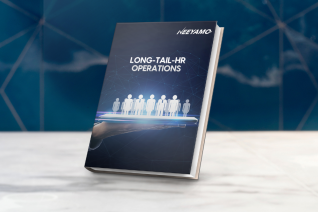Establish your presence globally with Neeyamo as we help you go beyond borders to manage your international payroll and hire new talent in Burundi.
Overview
Burundi is country located in the continent of Africa, sharing its borders with Rwanda, Tanzania and the Democratic Republic of the Congo to the north, east and the south respectively. The prominent industries in the country include Agriculture, Mining & Energy and Manufacturing.
Neeyamo provides assistance for the onboarding and management of employees in Burundi along with the processing of a firm's payroll, compliance, benefits, and more.
Tools And Instances
Facts And Stats
Capital
Gitega
Currency
Burundi Franc (BIF)
Official Language
Rundi (Kirundi) and French
Fiscal Year
1 January - 31 December
Date Format
DD/MM/YYYY
Country Calling Code
+257
Other Languages
English, Swahili
Time Zone
UTC +02:00
Global Payroll
Overview
Handling payroll for a widespread workforce can pose a significant challenge for any organization, and the added complication of compliance can make things worse. If companies spend more time processing payroll, it directly impacts day-to-day operations and their overall productivity.
Over the years, Neeyamo has observed these complexities and strived to provide a global payroll solution through a single technology platform - Neeyamo Payroll.
Payroll Taxes
Payroll tax is the percentage amount retained from an employee's salary and paid to the government to invest in the general population's welfare. These are statutory in nature and are levied from both the employer and employee. Additional statutory contributions are made by employers towards providing both short-term and long-term benefits for their employees.
Employee Taxes
The contribution to the social security fund is 10%; 6% by the employer and 4% by the employee, capped at BIF 4,50,000 per month.
| Upto 1.8 million BIF | 0% |
| 1.8 million BIF - 3.6 million BIF | 20% |
| Above 3.6 million BIF | 30% |
Employer Taxes
The contribution to the social security fund is 10%; 6% by the employer and 4% by the employee, capped at BIF 4,50,000 per month, and an additional 3% contribution by the employer, capped at BIF 80,000 per month.
Payroll Cycle
Overview
Undoubtedly, payroll is a critical process for any organization. Pay cycle in Burundi refers to the period for which an organization pays its employees, and this can vary depending on the pay frequency that the organization chooses to adopt.
Frequency
In Burundi, it is common for employees to be paid on a monthly basis. Payments must be made within eight days after the end of the month in which the salary is due.
13th Month Cycle
There is no statutory requirement to pay the 13th or 14th months' salary.
Global Work
Overview
An Employer of Record (EOR) service provider helps you eliminate the hassle of handling complexities while onboarding a new employee in an international location. They help bridge the gap that otherwise mandates organizations to have a local registered entity and a local bank account, prior to making a job offer to an international hire.
An EOR service provider acts as a legal employer, facilitates salary payments, and manages other statutory requirements such as health insurance, payroll taxes, and employee benefits ensuring compliance with local tax laws and regulations.
This allows organizations to focus on collaborating with the employee in Burundi for operational tasks, with the knowledge that they have a cost-effective solution support their global payroll & HR requirements, as they continue their global expansion.
HR Mandates and Practices
Minimum Wage
160 Burundian Francs per day, for those in the urban areas of Gitega and Bujumbura;
150 Burundian Francs per day, for those in rural area
Overtime
In cases of urgent or exceptional work due to a higher demand for work, the employer has the right to extend working time to a limit of 15 hours per week, and 150 hours per year.
Every hour considered overtime entitles the worker to the following compensation:
- 35% for each of the first two hours worked after the legal weekly working time, or the weekly presence considered as equivalent;
- 60% for each of the following hours.
Data Retention Policy
Burundi will retain data only for as long as necessary, and no personal data will be held longer than necessary.
Hiring and Onboarding Requirements
Hiring
The law guarantees equal opportunities and treatment in employment and work without discrimination. It is opposed to any distinction, exclusion, or preference based on race, color, religion, sex, political opinion, trade union activity, or ethnic or social origin about hiring, promotion, remuneration, and breach of contract.
Onboarding
The following details will be required during onboarding:
- Candidate Name
- Residence address
- date of birth
- nationality
- Education and Qualification details
- Previous work certificate (if applicable)
- contact information
- Copy of passport
Probation
The general probation period in Burundi is 6 months.
Leave
Public Holidays
National Holidays
The following national holidays are observed in Burundi:
New Year's Day (1st January)
Unity Day (5th February)
President Ntaryamira Day (6th April)
Labor Day (1st May)
Ascension Day (20th May)
Eid al-Fitr
Independence Day (17th July)
Eid al-Adha
Assumption of Mary (15th August)
Prince Rwagasore Day (13th October)
Ndadaye Day (21st October)
All Saints' Day (2nd November)
Christmas Day (25th December)
Sick Leave
Minimally, a worker should be entitled to an income during the first 6 months of illness. This income should be at least 45 percent of the minimum wage. (Companies are free to opt for a system that guarantees 60 percent of the last wages during the first 6 months of illness or even during the first year). A worker must be entitled to paid sick leave.
Maternity Leave
The duration of the maternity leave shall be of 12 weeks, with the possibility of extension to 14 weeks, of which at least 6 have to be taken after the birth.
Paternity Leave
Workers are allowed fully paid paternity leave of 4 days on the birth of a child.
Parental Leave
Two days of paid paternity leave.
Other Leave
Parental Leave: No provisions could be located in the law supporting parental leave for new parents after exhaustion of maternity leave
Annual Leave: Labor Law provides 20 days of paid annual leave (one and two-thirds of a day for every month of service), after completion of 12 months of continuous service.
Termination
Notice Period
Generally, notice period is fixed by collective agreement. According to the Labor Code, Minimum length of notice period for termination of employment contract by an employer is as follows:
- One month if the employee has the seniority (work experience with the firm) of less than 3 years;
- One month and a half (45 days) if the employee has the seniority of 3 to 5 years;
- Two months if the employee has the seniority of 5 to 10 years; and
- 3 months if the employee has the seniority of more than 10 years.
Severance Pay
In accordance with the Burundian Labor Code, severance pay is not payable to a worker employed on daily wages and when a worker is dismissed for gross negligence. In the case of individual dismissals, the rate of severance pay is as follows:
- One average monthly salary for workers with seniority of 3 to 5 years;
- Two average monthly salaries for workers with seniority of 5 to 10 years; and
- Three average monthly salaries for workers with seniority of more than 10 years.
Employee Background Checks
Legal and Background Checks
Background checks are available in Burundi. Past employment verification is recommended for all employees. The following background checks are conducted typically.
- Criminal Records
- Civil Records
- Education Degree/qualification
- Professional References
Last updated on April 30, 2023.
If you have any queries or suggestions, reach out to us at irene.jones@neeyamo.com
هل لديك استفسارات؟ ابق على تواصل معنا
تواصل مع أحد خبرائنا واحصل على عرض توضيحي سريع لخدماتنا








